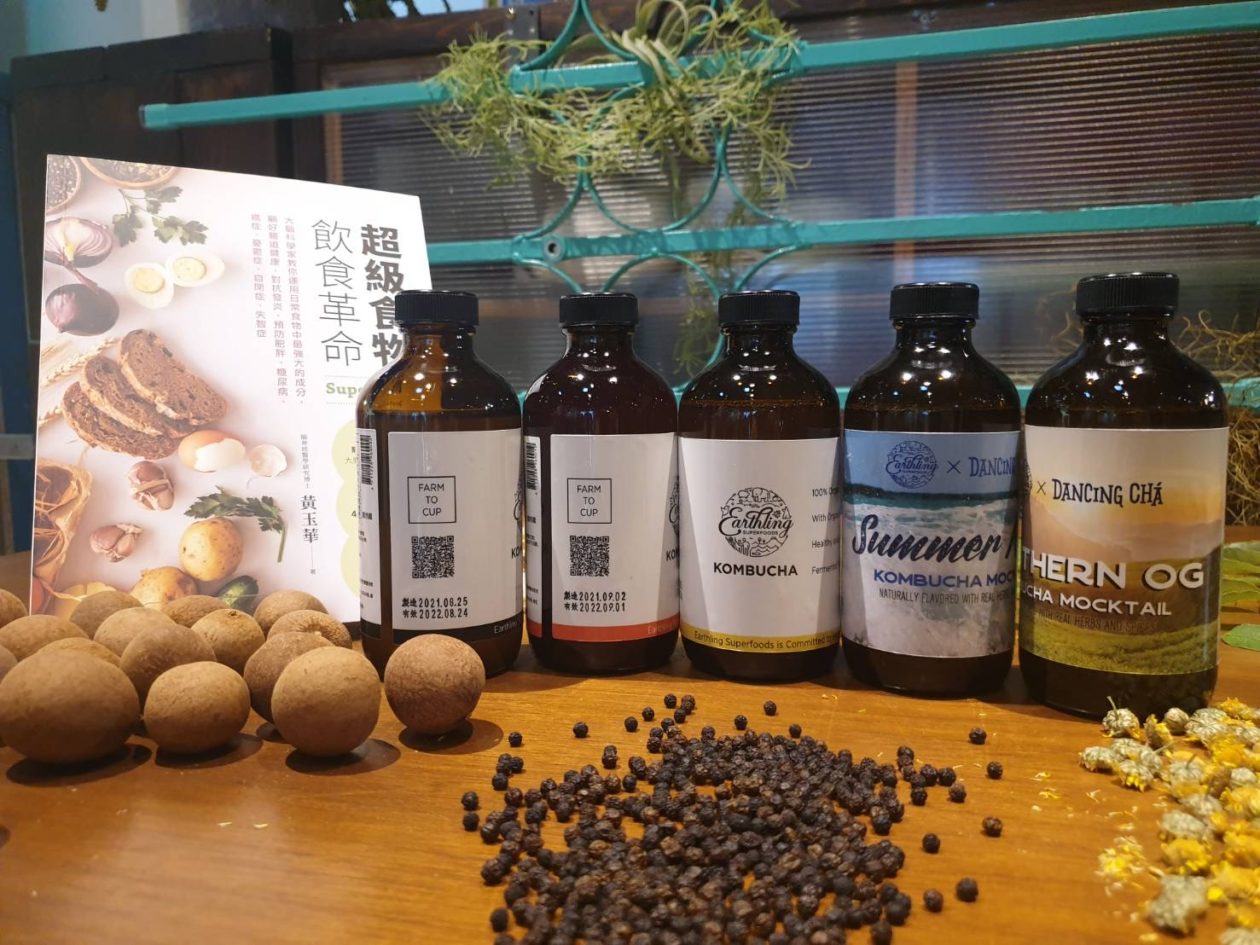Blockchain-based traceability in the food and agricultural supply chain can come in handy in combating counterfeit food products, and that’s especially true for premium tea products that are often dubbed the “green gold.”
Earthling Superfoods, a Taiwanese food sustainability startup, today announced a partnership with Dancing Tea, an organic tea farm in Hualien, to roll out kombucha tea products with a blockchain-based traceability system powered by TuringCerts, a Taiwan blockchain startup that offers verification services.
Samantha Huang, co-founder of Earthling, said at a press event today the Earthling team is looking to create a “food resume” initiative for the kombucha tea produced in partnership with Dancing Tea, aiming to log all the documents involved in the tea production on a blockchain — from farm to cup.
“We hope to keep records of all the reports of food safety-related checks and the data generated during different production stages, including planting, fertilizing, harvesting, drying and inspection,” Huang said.
Tea has ancient roots as a popular drink in Asia. In 2018, the Asia Pacific made up 39.28% of the global tea market, according to a report from Market Research Future.
Premium tea products are often dubbed “green gold” for a reason, Huang said, adding that some tea products are even more expensive than actual gold. She shared that China’s Dahongpao tea was once sold for US$28,000 for only 20 grams. In 2018, some Pu’er tea was auctioned off for US$1.6 million per kilogram, she said.
Such high prices and demand have led to widespread counterfeiting. Blockchain technology could power the traceability in premium tea products and in turn combat counterfeits, according to Huang.
Huang said the Earthling’s initiative is in its preliminary stage. Consumers are able to scan a QR code on the package of the tea to view a proof of origin for the product. Dancing Tea, which produced kombucha products for Earthling, has also put its documents related to food safety up on blockchain.
Looking ahead, Earthling hopes to collaborate with the Cardano Foundation, which has managed a traceability project for wine in Georgia, to test out more supply chain-related plans, including proofs of logistics and retailers, according to the company statement.
In Asia, things are looking good for tea traceability. In 2019, VeChain, a blockchain-as-a-service solution, launched a traceability platform for Pu’er tea produced in Southwest China’s Yunnan province, along with a few other blockchain companies.
Last year, TeaChain Foundation in Singapore set up a traceability platform called “TeaChain,” dedicated to tracing the data of the entire life cycle of tea planting, picking, processing, logistics, and warehousing.
Blockchain traceability has also been put to use in other industries. For example, blockchain company Everledger has used blockchain to track gemstones “from mine to finger” in Tanzania.
To combat wine counterfeiters, Chinese technology behemoth Tencent has collaborated with domestic wine producer Changyu Pioneer Wine to apply blockchain to the winemaking supply chain, from grape to bottle. According to Bin Ma, Tencent’s vice president, the traceability system could help improve the country’s wine industry standards.

